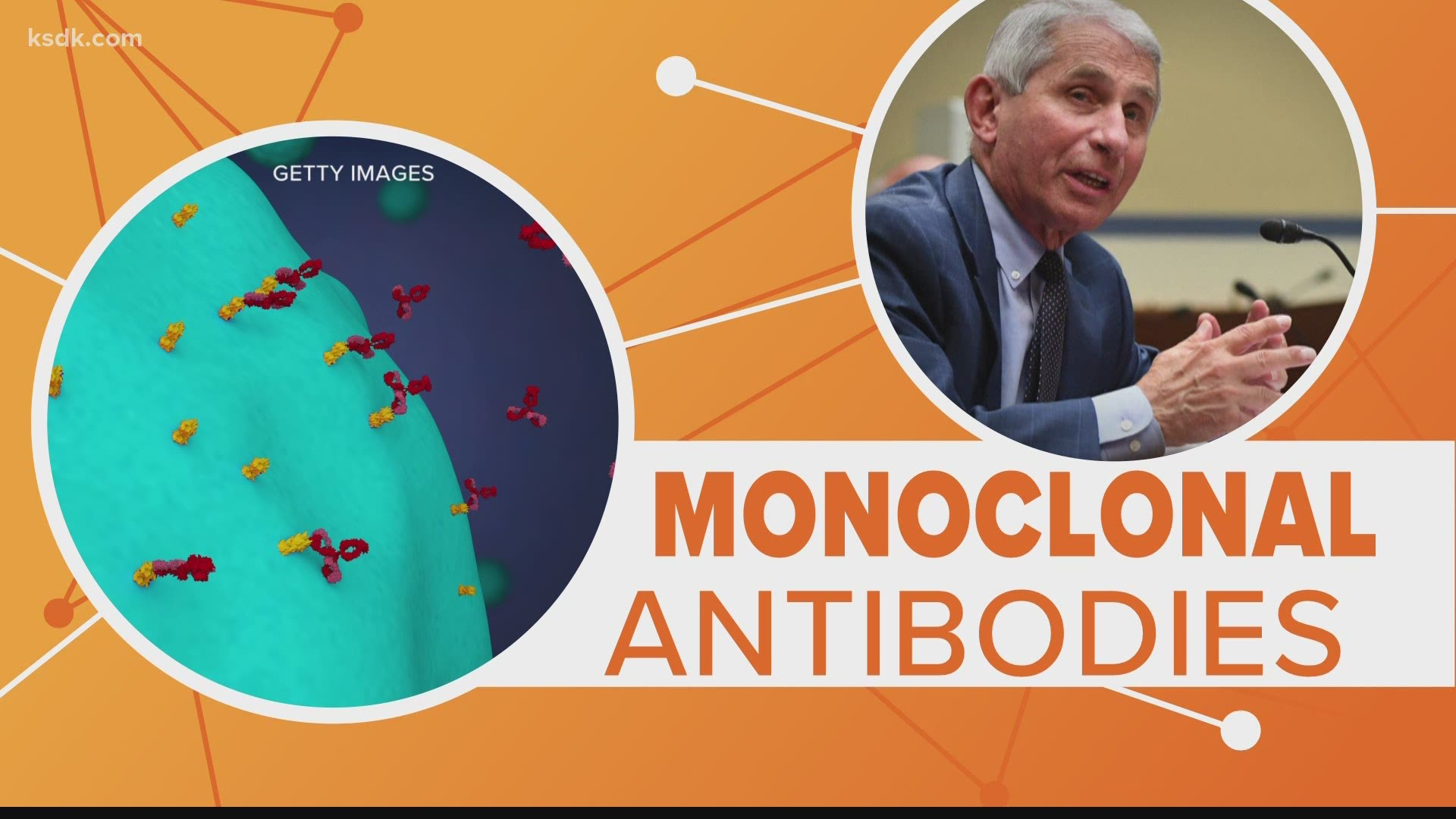ST. LOUIS — Over a week after President Donald Trump walked out of the hospital following his COVID-19 diagnosis, his drug cocktail Regeneron still generates buzz. Drugmakers want the FDA to grant emergency-use authorization for the COVID-19 treatment, as medical experts tribute it to his speedy recovery.
The treatment centers around monoclonal antibodies.
These special antibodies are traditionally used to treat all sorts of problems, from arthritis to cancer. Unlike regular antibodies, they’re created in a lab. Scientists clone white blood cells to mimic our body’s immune response and stop the virus from replicating.
Some researchers think this may be the most significant development in the fight against COVID-19. Dr. Anthony Fauci said there is a “reasonably good chance” they were instrumental in the president’s recovery.
Monoclonal antibody treatments are often compared to convalescent plasma, which utilizes naturally occurring antibodies. However, monoclonal antibodies are arguably a better treatment. Convalescent plasma can carry things our body doesn’t need or want, while monoclonal antibodies strictly carry the necessities your body needs to recover.
Companies have spent months conducting coronavirus trials with monoclonal antibodies. Tuesday, a trial from Eli Lilly was temporarily paused due to potential safety concerns.
Even if this futuristic treatment is eventually approved by the FDA, most folks will have a hard time getting their hands on it. The treatment is pricey to produce, supply is limited and the U.S. Department of Health and Human Services specifically references high-risk populations as recipients.
While monoclonal antibodies could be a major development, scientists warn that this is a temporary solution as several companies continue vaccine trials.

